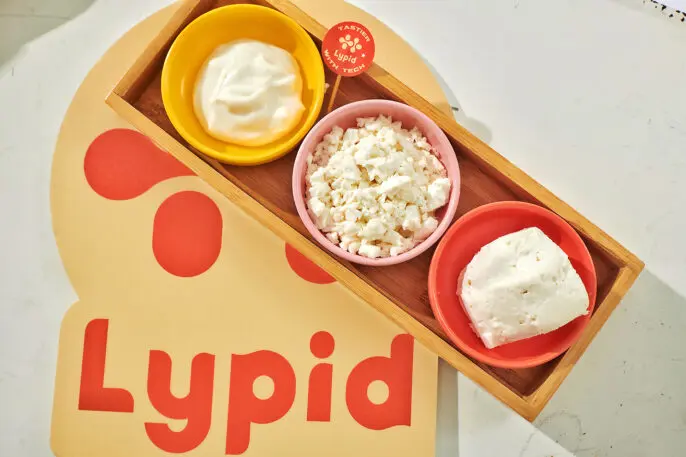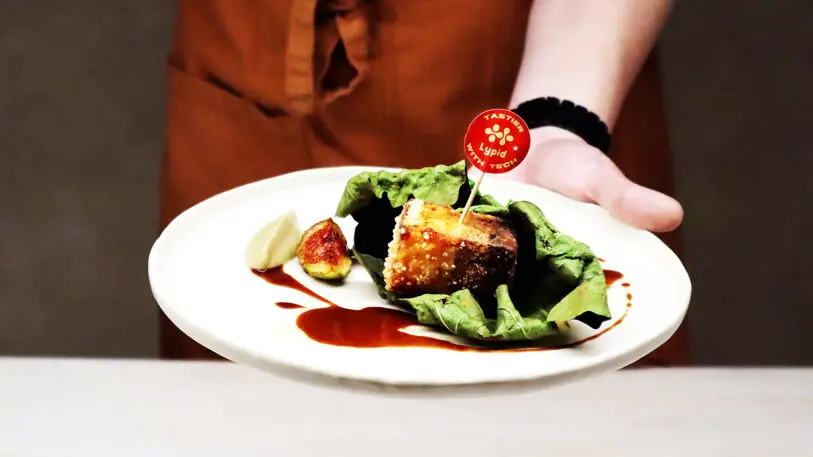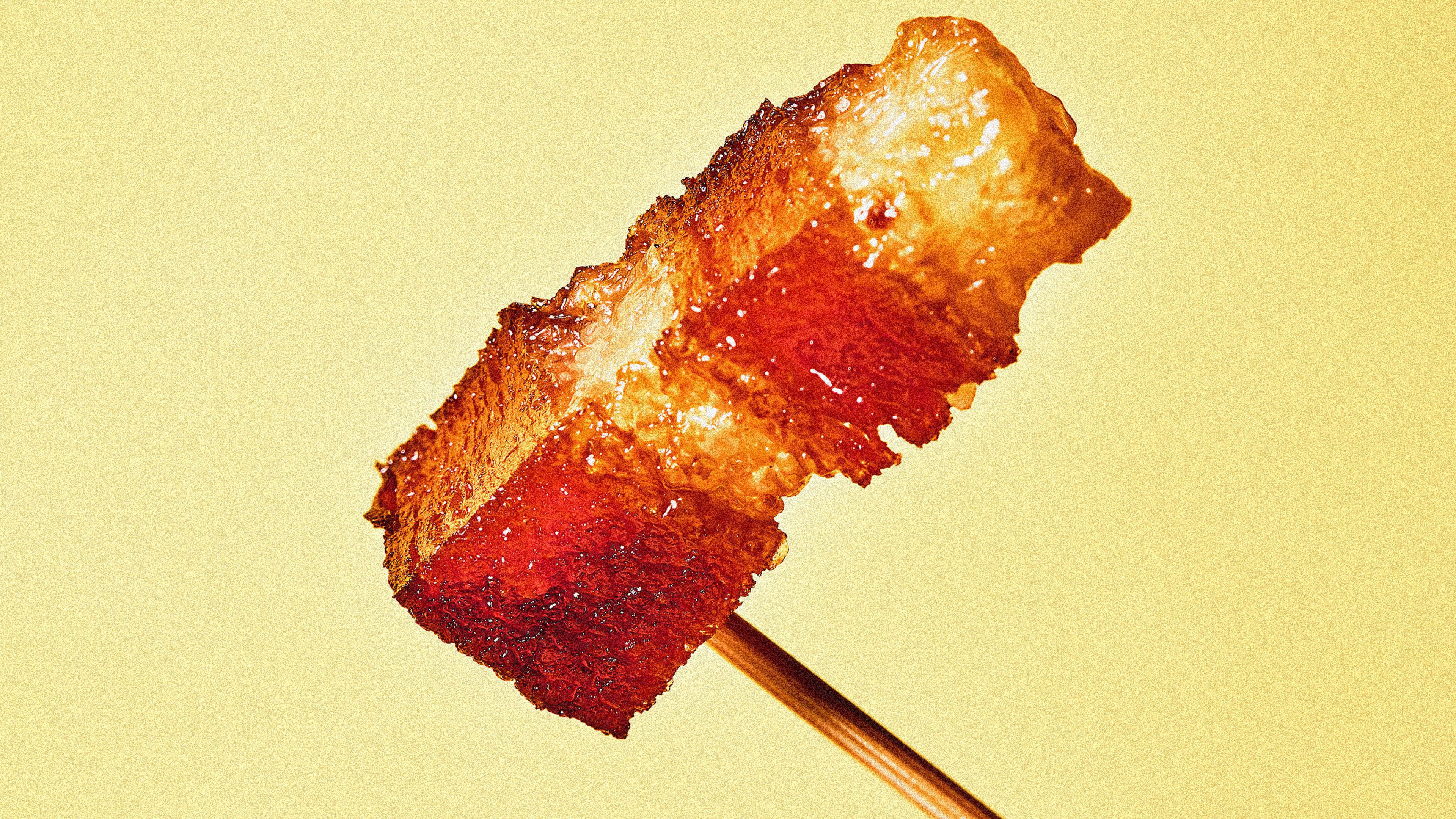An iconic part of pork belly is the fat, which is layered in thick strips through the cuts of meat. That fat helps make the meat juicy and tender, not to mention flavorful. On a slice of plant-based pork belly from the San Francisco startup Lypid, those layers of fat are clearly visible—but in this case, it didn’t come from an animal. It’s a vegan version called PhytoFat, meant to add a mouthwatering flavor to alternative meats.
In the quest to mimic meat, plant-based options have tried to add in some juiciness and flavor through alternative fats. No one wants a dry, crumbly vegan meat. Beyond Burgers, for example, have flecks of coconut oil meant to mimic the “marbling” in traditional beef patties. But plant-based fats behave differently than their animal counterparts, mainly by melting more easily. Coconut oil, in particular, melts at just 78 degrees F, while pork fat renders at around 130 to 140 degrees.

“Coconut oil melts out once you cook it, so there will be a puddle of oil,” says Michelle Lee, Lypid cofounder and CTO. “Our fat can withstand high cooking temperatures, so when you incorporate it into a product, after cooking, it still stays within the product.” Lypid says its fats are also lower in saturated fats than animal-based ones.
Lee and her cofounder Jen-Yu Huang tried a beta version of the Impossible Burger while in grad school at Cornell, but they both felt it could be juicier, and so got to work making plant-based fats with high melting points. Called PhytoFat, their product is made of plant-based oils and water, plus flavoring to mimic beef or pork.
It uses a technology called microencapsulation, in which little droplets are surrounded by a coating, to basically make a capsule. “We’re just creating very, very small droplets that contain oils, and we can then structure the entire product so that it behaves like animal fat,” Lee says.

Lypid has created its own pork belly to show how PhytoFat can be incorporated into a product. But Lypid is also selling its Phytofat just as an ingredient for other food companies to work with. It offers three kinds, at three different melting points and textures.
It has already been incorporated into items like plant-based burgers and bao. Lypid first launched across Asia and got a deal with Louisa Coffee, the largest coffee chain in Taiwan, to serve plant-based burgers using PhytoFat in more than 500 stores. Now, Lypid is launching in the U.S., both to restaurants and food companies.
“Because we’re providing our product as an ingredient, there really can be a lot of creativity around this,” Lee says. “Our product can withstand pan frying, oven baking, braising, all kinds of cooking temperatures, so chefs can create a lot of different products around it.”
Recognize your brand’s excellence by applying to this year’s Brands That Matter Awards before the early-rate deadline, May 3.
